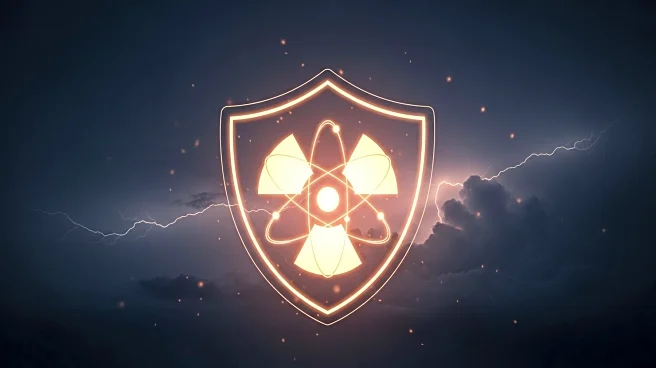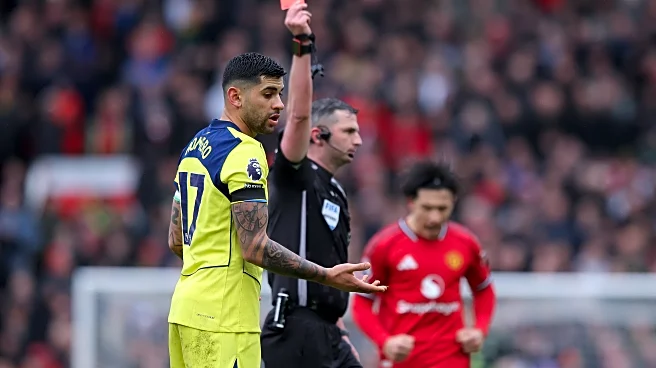What's Happening?
Iran's Supreme National Security Council has issued a warning that the potential reimposition of UN sanctions would halt Tehran's cooperation with the International Atomic Energy Agency (IAEA). This development follows the UN Security Council's failure to pass a resolution to prevent the reinstatement of sanctions. The council, chaired by President Pezeshkian, emphasized that actions by European nations to trigger sanctions would suspend Iran's engagement with the IAEA. Iranian hardliners are advocating for withdrawal from the Nuclear Non-Proliferation Treaty and the development of nuclear weapons in retaliation. The situation is further complicated by geopolitical divisions, with China, Russia, Pakistan, and Algeria supporting sanctions relief.
Why It's Important?
The potential reimposition of sanctions on Iran could significantly impact international diplomacy and nuclear non-proliferation efforts. If Iran halts cooperation with the IAEA, it may resume uranium enrichment, escalating tensions in the Middle East. This situation poses a challenge for global powers seeking to maintain stability and prevent nuclear proliferation. The geopolitical divide, with countries like China and Russia supporting Iran, complicates the international response and could lead to further diplomatic rifts.
What's Next?
Without intervention from the UN Security Council, international sanctions on Iran are likely to be reinstated. This could lead to increased tensions and a potential arms race in the Middle East. The international community, particularly European nations, may need to engage in diplomatic efforts to prevent further escalation and encourage Iran to remain within the framework of the Nuclear Non-Proliferation Treaty.











